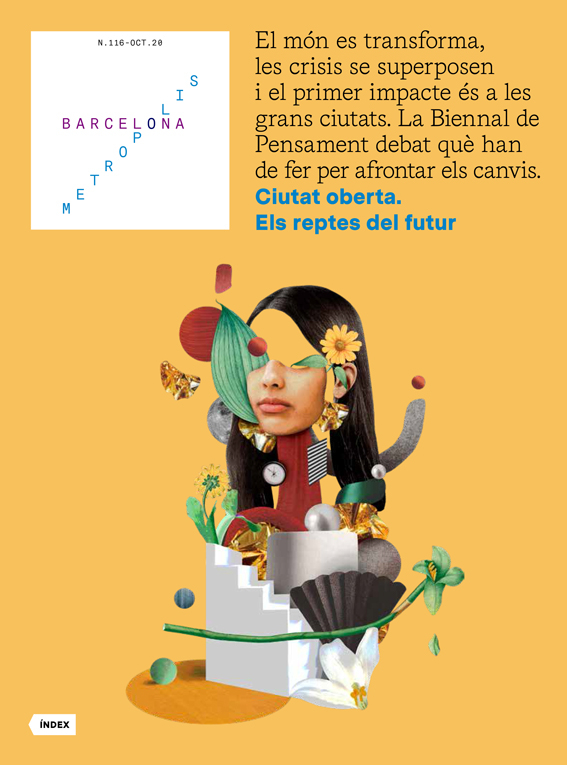The dignity of being citizens of the world
- Books
- Culture Folder
- Oct 20
- 4 mins

Nussbaum traces the genealogy of the cosmopolitan tradition, which is rooted in the response given by Diogenes the Cynic when asked where he was from, to which he answered he was a kosmopolitês (citizen of the world). According to the philosopher, the concept of dignity implicitly lies in this statement, that is, the consideration that all human beings are equal, regardless of their place of birth or social hierarchy.
In accordance with the issues so characteristic of her, in The Cosmopolitan Tradition. A Noble but Flawed Ideal, Martha Nussbaum presents a theory of justice based on dignity that reflects a partial conception of well-being. The proposal is partial because it does not seek to state how we must live in every domain, but to set out the basic needs that must be met for everyone to attain a well-lived life in the manner they consider most appropriate. As she explains at the end of the book, this is her version of human capabilities as one of the foremost proponents of the approach since the turn of the 21st century, together with Amartya Sen.
This work proposes a review of the concept of dignity as a fundamental element of human equality considered from the moral point of view, that is, in relation to justice. Nussbaum’s expertise in classical philosophy is evident in an enlightening journey through the genealogy of the cosmopolitan tradition, which is rooted in the answer given by Diogenes the Cynic when asked where he was from, to which he answered he was a kosmopolitês (citizen of the world). According to the philosopher, this statement implicitly contains the concept of dignity, that is, the consideration that all human beings are equal, regardless of their place of birth or social hierarchy, and therefore everyone should be treated with dignity. Then, and with the help of Cicero’s De officiis, Nussbaum develops Cicero’s notion of justice and the two kinds of obligations derived therefrom: “duties of justice” and “duties of material aid”. Based on these considerations, and supported by Groci and Adam Smith, the philosopher and professor of ethics and law at the University of Chicago critically develops these two types of obligations in order to show – fittingly, in my opinion – that in order to assume duties of justice, considered morally indispensable, duties of material aid that our ancestors used to distain will first have to be fulfilled.
Nussbaum revisa el concepte de dignitat com a element fonamental de la igualtat humana considerada des del punt de vista moral, és a dir, en relació amb la justícia.
Stoic dignity
Nussbaum presents the notion of Stoic dignity as the predecessor of human rights, but also points out that human rights depend on being enforceable and therefore call for money. In a compelling and explanatory manner, the second chapter presents the dangers, rooted in Stoicism, of reducing dignity to voluntarism, that is, to everyone’s will to overcome misfortunes in life. This perspective has the advantage of asserting that even the most unfortunate human being has dignity, but also the serious flaw of denying the importance of external goods for a well-lived life and, consequently, of absolving ourselves of the responsibility to fulfil the aforementioned duties.
Inasmuch as she understands that politics is based on a moral ideal, Nussbaum is forced to justify why human beings should behave as she claims, and thus to contribute a convincing doctrine of moral psychology. Moreover, mindful of the complex interrelationships between the different parts of our world — especially in today’s world, but also in the past —, this moral psychology must be applicable among states; it must convince states to uphold moral relations with one another and, therefore, also fulfil the duties of justice and material aid. It should perhaps be noted at this point that the book does not precisely develop the analogy between the individual and the nation-state, so that, in recognising and engaging in dialogue with the actual operations of current international politics, an uncritical reification of nation-states could be identified. This may be the other side of Nussbaum’s great strength: the ability to think on the ground, recognising the mechanisms and difficulties of our world, making it easier for us to accompany her on this journey through time and to fulfil her intention of reading the past to think out the present.
La tradición cosmopolita. Un noble e imperfecto ideal
[The Cosmopolitan Tradition. A Noble but Flawed Ideal]
Martha Nussbaum
Ediciones Paidós
336 pages – Barcelona, 2020
The newsletter
Subscribe to our newsletter to keep up to date with Barcelona Metròpolis' new developments




